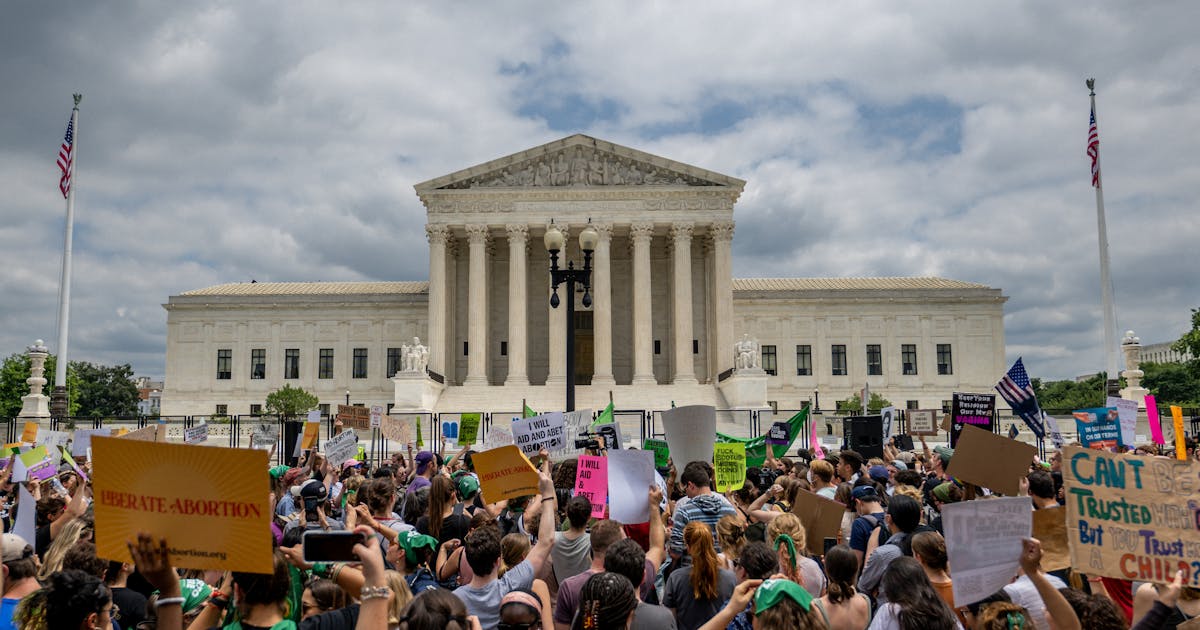Reminder that getting control of the house and senate could make stuff like this potentially get through
This proposal is not only one that expands the number of justices over time but alter things like the court’s shadow docket, require justices to release tax returns, and more



Sounds good to me but:
One of the three co-equal branches (Executive, Legislative, Judicial) limiting another can’t last without popular appeal or a Constitutional Amendment.
Even trying to explain that to the average U.S. voter is a lot.
The idea that one branch limiting another requires “popular appeal or a Constitutional Amendment” is a bit misleading. The Constitution already provides the Legislative Branch with various checks on the Judiciary. For example, Article III, Section 1 gives Congress the authority to structure the federal judiciary and set the number of Supreme Court Justices. Congress has used this power in the past to both expand and contract the size of the Court (changing the number of justices in the 1800s). This can happen without an amendment or mass public support.
Wyden’s proposal to expand the Supreme Court to 15 justices over 12 years is another example of using these constitutional mechanisms. The proposal also includes measures to increase transparency, such as requiring a supermajority to overturn acts of Congress, automatic Senate calendar placement for stalled nominations, and stricter financial disclosures for justices. None of these steps require changing the Constitution; they rely on existing legislative powers.
Explaining this to the average voter might be challenging, but the fact remains: Congress has the constitutional authority to regulate the judiciary, even if it’s not commonly exercised or well understood. Wyden’s bill seeks to use those powers to restore trust and transparency in the Court without needing a constitutional amendment.
So, the checks and balances already exist – it’s a matter of political will and the legislative process, not necessarily popular appeal or constitutional change.
No, it’s plainly incorrect. I was able to come up with three or four counterexamples immediately, and I’m no kind of Constitutional lawyer.
anything Congress does can just as easily be repealed by Congress.
I’m all for it, hope it goes well. because if it doesn’t, this is a fast track to shit
no
Keep in mind that Judicial Review (deciding if laws are constitutional or not) isn’t even a constitutional power. It’s one the court gave itself in Marbury v. Madison.
Yep, straight-up power grab, and neither Congress or the President pushed back.
Thanks
Doesn’t the Supreme Court limit the powers of the house and the presidency, like, a lot?
It rules on whether Consitutionally stated powers and their limits apply to specific executive acts and legislation. So yes.
The 250 year old document establishing the government makes everything clear as mud, but outside of eating mud pies, I am not an expert.
Edit I got some meaty responses, look to that
This is why I like the 127 DC states plan so much - it’s a viable way to turn a three-way Dem bare majority (Dem Pres, Senate with 50 Dems and dropped filibuster, and Dem house) into lasting change via constitutional amendment.
https://www.vox.com/2020/1/14/21063591/modest-proposal-to-save-american-democracy-pack-the-union-harvard-law-review
The Constitution lists a number of checks and balances that don’t require a Constitutional amendment. “Last without popular appeal” is just an assumption that we live in a democracy, it’s true of all government actions in that case, and so is almost tautological.
For example, presidential vetoes are used frequently, limiting the power of the Legislative branch, and not requiring a Constitutional Amendment. Same goes for the advise-and-consent powers that the Legislative branch can exercise over presidential appointments. There are plenty more.